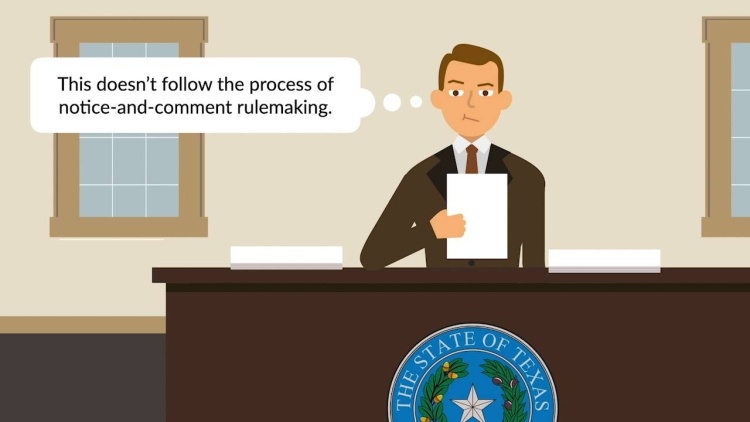Texas v. United States
United States Court of Appeals for the Fifth Circuit
809 F.3d 134 (2015)

- Written by Sean Carroll, JD
Facts
The Secretary of the Department of Homeland Security (DHS) (defendant) issued a statement-of-policy memorandum outlining a process for deferring deportation of aliens who had been in the United States for five years and had a child who was a citizen or lawful permanent resident. The process was known as the Deferred Action for Parents of Americans and Lawful Permanent Residents program (DAPA). The memo granted DHS employees discretion in processing DAPA applications and stated that determinations on eligibility were to be made on a case-by-case basis. Specifically, DHS agents were required to determine whether applicants were threats to national security or had significantly abused the visa program. However, mandatory terms and directives in the memo indicated that DHS sought to ensure that DAPA applications were rubber-stamped. In addition, President Obama had publicly stated that DHS employees who did not follow the memo would face consequences. The State of Texas (plaintiff) brought suit challenging the memo on the ground that it was an agency rule and thus required notice-and-comment rulemaking. DAPA was modeled after a prior DHS statement-of-policy memo that called for deferred deportation of children who had been in the country for five years and were under 16 years old when they arrived, known as the Deferred Action for Childhood Arrivals program (DACA). The DACA memo had also called for DHS employee discretion in making eligibility determinations, but DHS had approved 95 percent of DACA applications. The district court found that the DACA memo’s call for DHS discretion was merely a pretext. Based in part on this finding, the district court found the same to be true with respect to the DAPA memo and granted a preliminary injunction against the government’s implementation of DAPA. DHS appealed.
Rule of Law
Issue
Holding and Reasoning (Smith, J.)
Dissent (King, J.)
What to do next…
Here's why 907,000 law students have relied on our case briefs:
- Written by law professors and practitioners, not other law students. 47,100 briefs, keyed to 996 casebooks. Top-notch customer support.
- The right amount of information, includes the facts, issues, rule of law, holding and reasoning, and any concurrences and dissents.
- Access in your classes, works on your mobile and tablet. Massive library of related video lessons and high quality multiple-choice questions.
- Easy to use, uniform format for every case brief. Written in plain English, not in legalese. Our briefs summarize and simplify; they don’t just repeat the court’s language.





